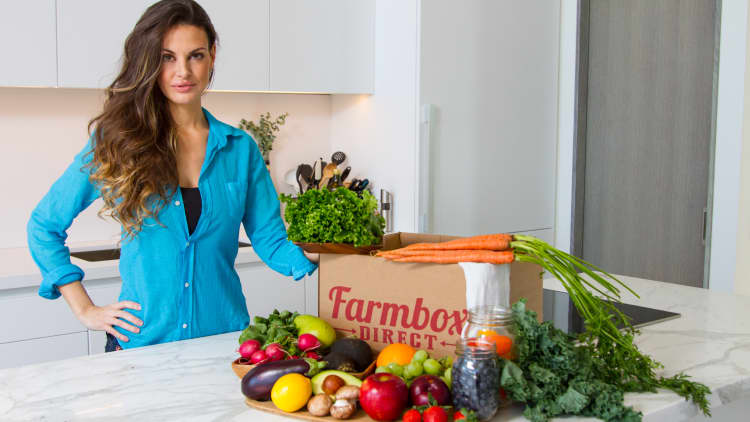For Farmbox CEO and founder Ashley Tyrner, being on food stamps turned out to be a blessing in disguise.
It not only forced her to kick her career into high gear, but it also helped spark the idea for her future business.
At the time, Tyrner was a 27-year-old new mother, whose husband had recently left her. She didn't have a job or a college degree.
"I was on food stamps and pregnant at one point so I had no choice but to make it, and I didn't have education to really fall back on," said Tyrner, who is now 32 years old.
After her daughter's birth, Tyrner left California for a fresh start and took a job in fashion in New York City, working as a brand manager, before turning her attention to the food world.
In 2014, she launched Farmbox, a company that delivers boxes of produce to customers, with a specific eye to two groups of customers: the time-pressed and those in food deserts, areas that lack accessible food that is affordable.
While on food stamps, Tyrner realized how difficult it was to eat healthy food while on a budget. Farmbox's deliveries start at about $39.
The company quickly took off. This year, it's on track to generate more than $5 million in revenue. To date, it has raised a seed round of $450,000 from investors.
But it's been a steep learning curve.
"One of the major struggles for me was I had to really learn how to be a CEO of a national company and to lead others that work for me," she said.
Farmbox currently has 26 employees.
"Your attitude and how you manage people makes or breaks a company," she added.
Her lack of a college education pushed her even harder, Tyrner said, because she had no choice but to succeed. She met venture capitalists who would comment on her missing college degree, along with her status as a woman.
"There was one VC meeting that I walked out of," she said. "I had a VC say to me, 'Could you please tell me what's in the business bank account? Because you didn't go to college, and women as a whole are really known to not be superbly great with money.'"
For aspiring entrepreneurs, Tyrner shared some of her best advice for getting off the ground.
"One of my biggest tips for entrepreneurs is to just go for it if you have a great concept and you have a great idea," she said.
People matter, too. Surround yourself with people who can help you.
"When I was on food stamps, my Rolodex was thick with contacts from my time of living in California, but my wallet wasn't," she said. "I really learned that networking is key."



